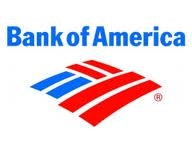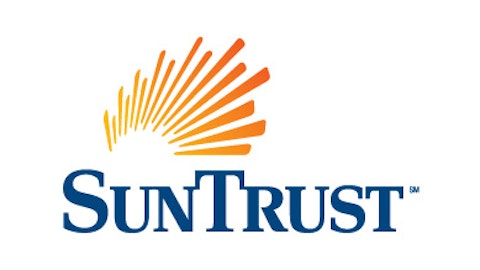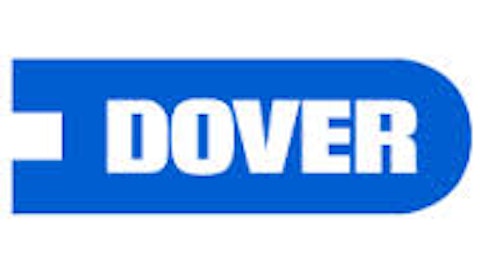Language can have its share of tragedy in human psychology, and in today’s highly politicized environment, that’s getting worse than ever. A perfectly simple word can get tied to a topic that immediately and unreasonably splits opinions and shuts down reasonable discussion and assessment right then and there.
Take the word “sustainable.” According to Merriam-Webster, this adjective means:
- Capable of being sustained
- a: of, relating to, or being a method of harvesting or using a resource so that the resource is not depleted or permanently damaged
b: of or relating to a lifestyle involving the use of sustainable methods
The core word “sustain” has many definitions, all positive: “to give support and relief to,” “to supply with sustenance,” “keep up, prolong”… Merriam-Webster has eight definitions of this word, all of which relate to concepts like nourishment, support, legal proof, and even hope.
Try using the word “sustainability” in the business and investing sense, though, and many people will immediately have a negative reaction. This reaction is illogical. The word can relate to conserving resources that businesses rely on (and resource supply and scarcity does affect investment returns). It can also boost efficiency and cost savings. These are both pretty simple, common-sense economic principles.
The politicization and negative connotations of the word sustainability cause some to miss the big picture. Let’s reject language hijacking for political purposes and open our minds to sustainability as a very positive concept for business, economies, and people.
Brown delivers green
Whether it’s publicized or not, many major companies are already pretty deep into saving resources while reducing costs. United Parcel Service, Inc. (NYSE:UPS) has recently released its 2012 sustainability report. Despite the fact that Big Brown delivered more packages, it actually reduced its greenhouse gas emissions. Some of the ways it did so are ridiculously simple. It reduced ground travel by 12.1 million miles simply by rethinking driving routes. This resulted in saving about 1.3 gallons of fuel, too.
The delivery giant has also upped the ante. In four years’ time, United Parcel Service, Inc. (NYSE:UPS) vows to reach 1 billion miles using alternative energy and technologically advanced vehicles. That well exceeds its previous goal of 400 million miles.
Back to the future
There are plenty of examples of simple solutions to a lot of the waste in our use of resources, some of them scant.
CNNMoney reported yesterday that some New York companies are using a simple, natural way to supplement cooling costs — not to mention drains on the grid. It’s ridiculously obvious: ice. A discussion board conversation with members of our Foolish community emphasized the fact that the concept isn’t even a new one. Ancient Romans used cool water in their aqueduct system to beat the heat.

The entities using “thermal storage,” which utilizes ice cooling tanks that freeze and melt on a daily basis, aren’t fly-by-night or tiny companies. Goldman Sachs, Bank of America Corp (NYSE:BAC), and Morgan Stanley are among the companies utilizing this method of supplementing air conditioning energy.
CNNMoney spoke to an executive from thermal storage equipment company Calmac, who said that this particular back-to-the-future solution can cut energy costs by up to 40% in commercial buildings. Meanwhile, it not only cuts costs, but it reduces strain on the grid and reduces emissions.
Most companies that actually make the equipment are privately held, although Ingersoll-Rand PLC (NYSE:IR) subsidiary Trane is in on this well-kept secret in reducing A/C-related energy consumption and produces such units. Ingersoll-Rand PLC (NYSE:IR)’s climate solutions segment, which includes energy-efficient refrigeration and HVAC products and includes Trane and Thermo-King, brought in $7.4 billion in revenue according to the company’s most recent 10-K. That’s not chump change.
More cost-efficient than a waste basket
Speaking of banks, it’s interesting that the CNNMoney article cited a litany of New York banks and investment giants. For companies like these, initiatives like the one above won’t even break the proverbial bank: Each thermal storage unit costs $15,000 to $30,000.
This is ironic given the height of decadence before and even during the financial crisis. Recall that Merrill Lynch’s former head John Thain spent serious cash on office decorations. When one ponders $68,000 for a 19th-century credenza, $131,000 area rugs, and $87,000 guest chairs, heck, cost-cutting ice tanks are incredibly shareholder friendly. Could a leader who finds $1,500 trash cans reasonable be an excellent steward of long-term shareholder value? Of course, Bank of America Corp (NYSE:BAC), one of the ice tank users, bought Merrill Lynch during the financial crisis.
To give Bank of America Corp (NYSE:BAC) credit where it’s due, though, it has been actively investing in cleaner, greener solutions. The Bank of America Corp (NYSE:BAC) Tower at One Bryant Park is a leader, being the first commercial skyscraper to achieve the coveted top LEED Platinum certification. Just this year, it upped the ante on helping address climate change, lower natural resource demand, and push forward lower-carbon economic solutions. It’s now vowed to make a $50 billion investment over a 10-year period, given the company’s early achievement of its previous $20 billion plan of action.
According to Bank of America Corp (NYSE:BAC) CEO Brian Moynihan himself, “Environmental business delivers value to our clients, returns for our shareholders, and helps strengthen the economy.”
Propaganda versus profit
These are just a few examples of innovative yet simple ways huge companies are not only cutting costs, but also protecting the environment and crucial resources everyone relies on.
Many investors have no interest in pushing back against management teams on issues like pay; they consider these folks “the smartest guys (and gals) in the room” and the ultimate geniuses to run their companies, no questions asked. Of course, such investors aren’t listening when managements at behemoth companies make major moves in a sustainable direction.
The fact that even investing can be so terribly polarized by political word association is a shame. What’s most shameful, though, is that many investors are missing the real definition of the foundations for the strongest 21st century companies. That’s no way to build positive returns.
The article Ignore the Propaganda About This Profit-Boosting Factor originally appeared on Fool.com and is written by Alyce Lomax.
Alyce Lomax has no position in any stocks mentioned. The Motley Fool recommends Bank of America, Goldman Sachs, and United Parcel Service (NYSE:UPS). The Motley Fool owns shares of Bank of America.
Copyright © 1995 – 2013 The Motley Fool, LLC. All rights reserved. The Motley Fool has a disclosure policy.




